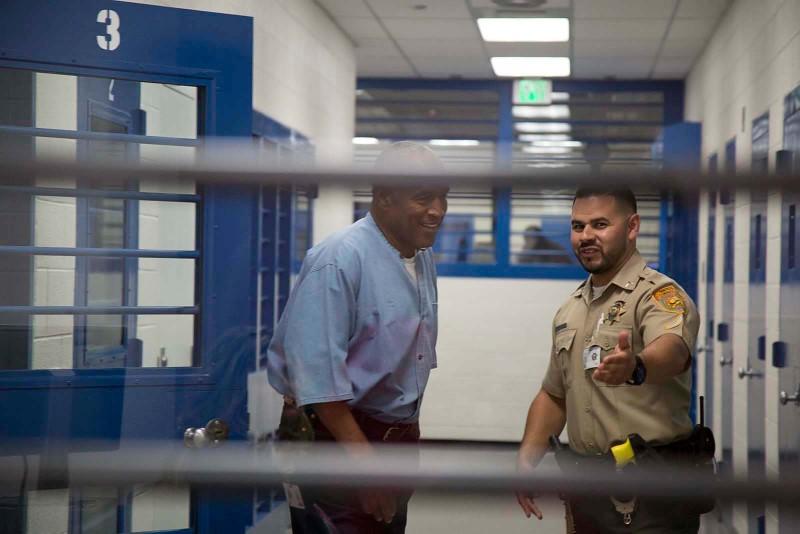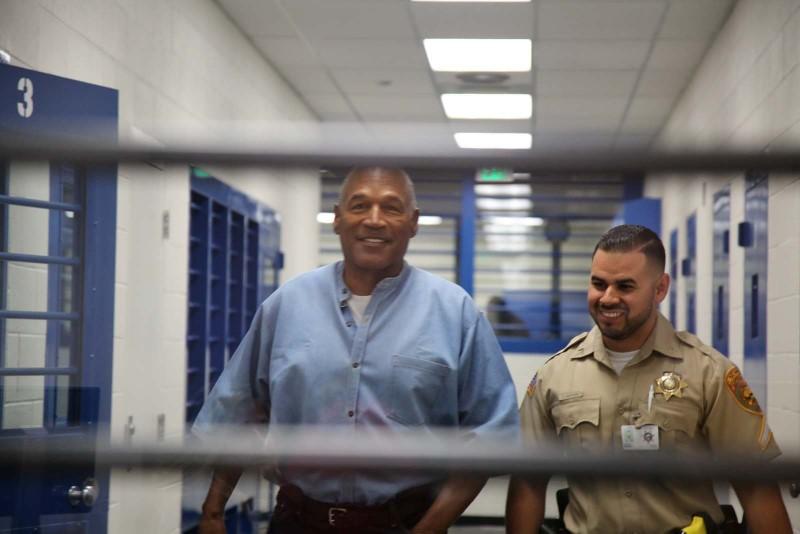CARSON CITY, Nev.—A state parole board in Nevada convened on Thursday morning to consider O.J. Simpson’s bid for freedom after nine years in prison for a botched armed robbery of his own sports memorabilia in a Las Vegas hotel room.
The 70-year-old former football star, known best as the central figure in the so-called Trial of the Century, appeared before the board by live video feed from Lovelock Correctional Center, about 100 miles from the parole board’s office in Carson City.
He was joined by supporters including his daughter, sister and one of his robbery victims.
Simpson, 70, whose on-field nickname was “The Juice,” should be an ideal candidate for parole, based on his conduct in prison and other typical factors, according to legal experts.
But the four parole board members who will determine his fate may find it hard to avoid memories of the sensational case that captivated the country, when Simpson was charged with killing his wife, Nicole, and her friend Ronald Goldman in 1994.






